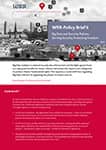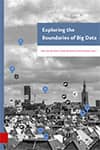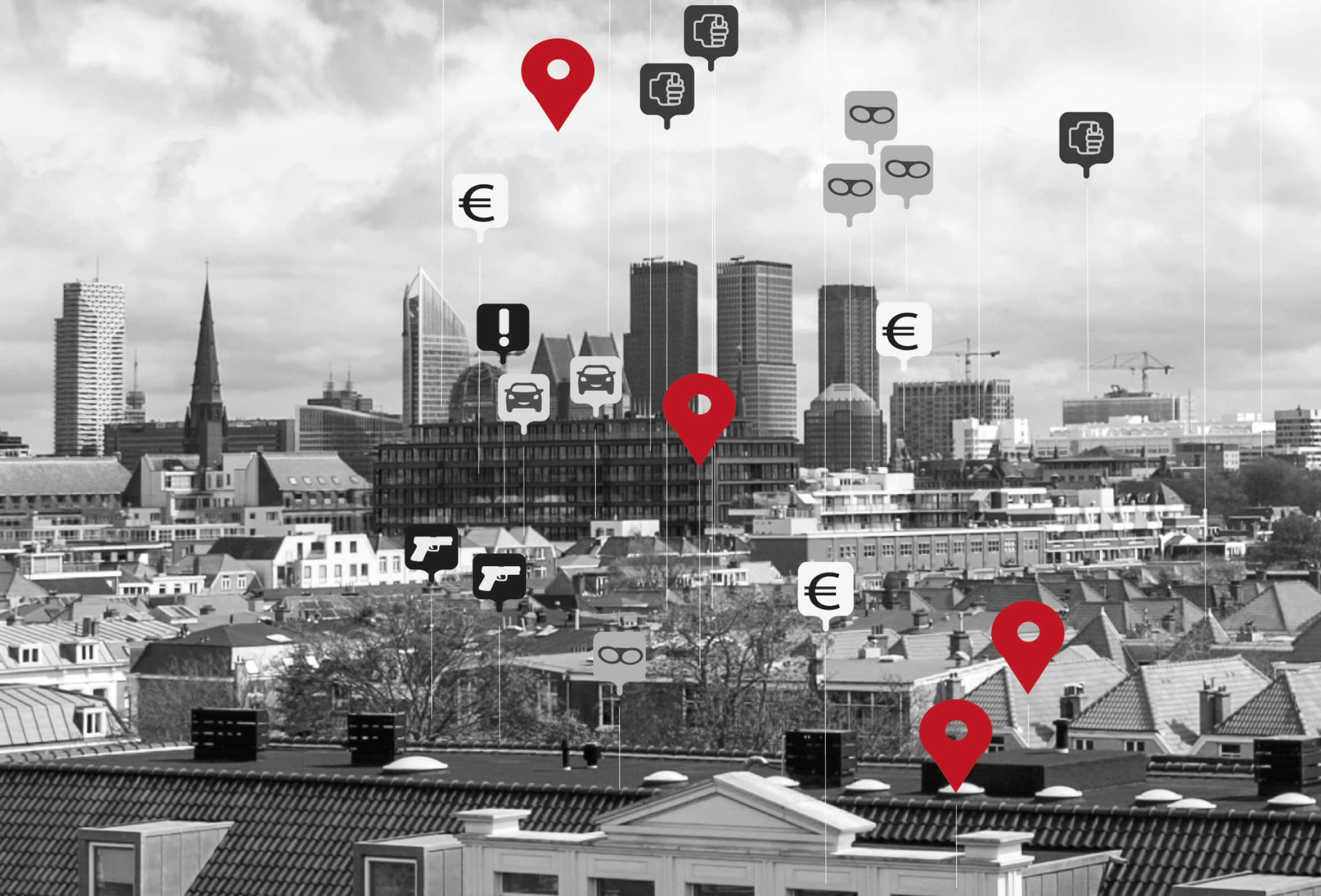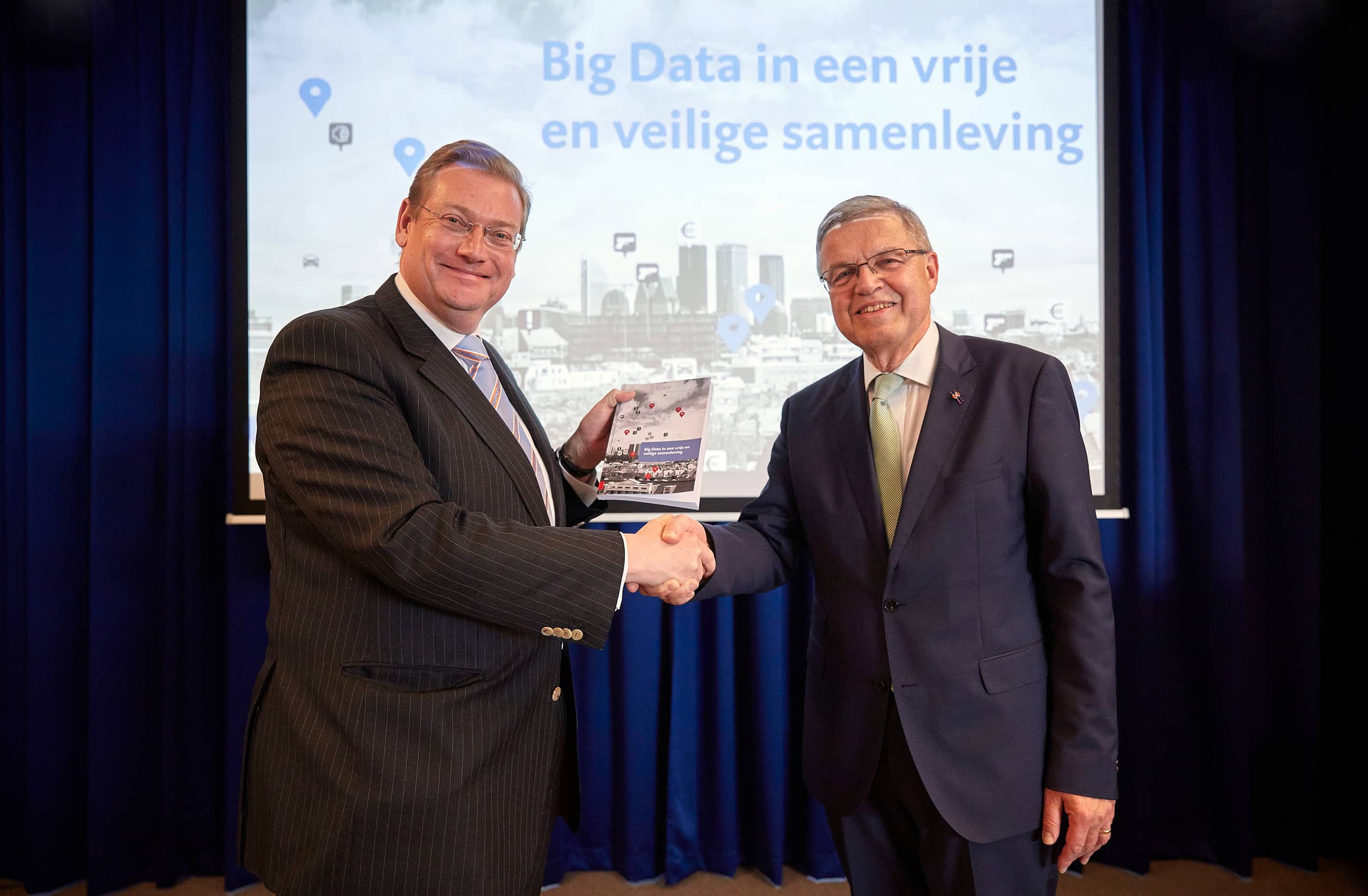The information society is increasingly characterised by the large quantity of data that is available about individuals, their networks and the world they live in. In the project Big Data, privacy and security, the WRR analyses how the government can use Big Data, especially in the security domain. The Council believes that strengthening the legislative and regulatory framework in this area is essential for safeguarding fundamental rights and freedoms.
Free and secure society
The project has culminated in the publication of the report 'Big Data in a Free and Secure Society' (Big Data in een vrije en veilige samenleving), the study Exploring the Boundaries of Big Data and a number of background studies. An English-language policy brief, based on the report, was published on 31 January 2017:

Image: © WRR
Big Data and Security Policies: Serving Security, Protecting Freedom (WRR-Policy Brief no. 6)
Big Data analytics in national security, law enforcement and the fight against fraud can reap great benefits for states, citizens and society but require extra safeguards to protect citizens’ fundamental rights. In this policy brief the WRR argues this requires a crucial shift from regulating Big Data collection to regulating the phases of analysis and use.

Image: © WRR
Exploring the boundaries of Big Data (WRR-investigation no. 32)
The Big Data phenomenon has a major impact on the world in which we live. A positive impact because Big Data encourages efficiency, rights, service provision and security. A negative impact because Big Data can result in discrimination and the violation of privacy. By means of the compilation Exploring the Boundaries of Big Data, the WRR wishes to contribute to a framework that encourages the use of Big Data and prevents its negative impact.
Age of Big Data
We largely generate that data ourselves, for example through the digital trail we leave behind when we use mobile devices or the internet. Combined with vastly increased digital storage capacity, growing computing power and new techniques for data analysis, we now live in the age of “Big Data”.
Request for advice
The government sees both opportunities as well as risks in deploying big data technology to make the Netherlands safer. With a view to ensuring the proper use of Big Data, along with firm safeguards for privacy and other fundamental rights, the government requested the Council on 26 May 2014 to formulate an advice on the topic of “Big data, privacy, and security”. The government’s request focuses on four key issues:
- Is it possible to draw a clearer distinction in privacy and data protection law between access to data, collection of data, and use of data? And if that is possible, should such a distinction in fact be made?
- How can the process of profiling, and data mining, and other techniques of data-analysis be made sufficiently transparent with a view to security without damaging their effectiveness for security policy?
- What does the development of quantum computers mean for the process of data processing and protection (encryption)?
- What is the impact of big data on government data management systems, and how can citizens be involved and influence this process?
Regulating data analysis
In answering these questions, the WRR focuses on the development of a regulatory framework for the use of Big Data by the government in the security domain. The Council argues that the emphasis in that framework should be on regulating data analysis and use rather than on intensifying the regulation of data collection. It is in the phases of data analysis and use that the biggest opportunities and risks of Big Data lie and where new rules are needed.
News

WRR-Policy Brief on use of Big Data in the security domain
The use of Big Data in the field of security requires new frameworks. That is argued by the WRR in its policy brief Big Data and ...
Read more
Presentation of WRR Report on Big Data
The use of Big Data in the security domain demands new frameworks. That is the conclusion of the WRR in its new report ‘Big Data ...
Read more
